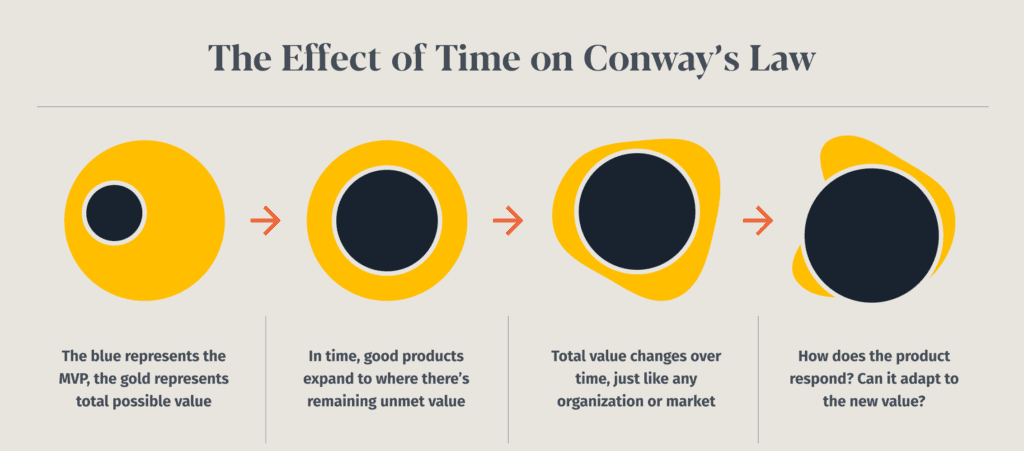
Back in May, I had the opportunity to attend the first (and maybe only?) ever All-In Summit in Miami Beach Florida at the New World Symphony Hall. The All-In Summit was an outworking of the acclaimed podcast of four tech executives turned investors who weekly discuss current events. The Summit allowed only 700 attendees and boasted speakers like Bill Gurley, Mar Hershenson, Elon Musk, and Flexport’s Ryan Peterson.
While I would encourage you to review the talks on YouTube, I wanted to share my biggest takeaways from conversations that occurred on and off the stage.
Everyone Experiences Imposter Syndrome
As I was packing for this trip, I started panicking. The more I thought about attending the conference the more I realized that I was going to be sharing space with some of the most inspiring founders and investors of the last 20 years. How does this not turn into an episode of The Chris Farley Show? Surely I am going to be exposed for the cretinous fraud that I am! How does one pack for that trip?
I wasn’t alone in my assessment of unbelonging. Many of the folks I spoke to were equal parts excited and worried about the event. Even Chamath Palihapitiya, renowned Facebook exec and prolific investor–and one of the four people actually putting on the event–shared from the stage that he was worried about the success of the event and that he was afraid that no one would care enough to show up.
In short, even the most accomplished people get this feeling. You’re not alone! Push through it and you’ll prove to everyone (and, most importantly, yourself) that you do belong.
Equitable Conferences are Possible; But They Require Work
It’s no secret that almost every conference needs to have better gender representation from both speakers and attendees. While this particular conference could have benefitted from more women on stage, I must applaud the 40% attendance by women. Tech conferences that boast they’ve done a good job in this area generally field only about half that ratio.
Since there were only 700 people who could attend the summit, the planners created an application process in order to curate the attendee list and limit potential attendance disparities.
Everyone I met at the conference was impressive and had unique and diverse achievements coming from a wide range of nations, age groups, and backgrounds. I hope more conferences take a prompt from the way this conference was built and use the model to build better and more reflective conferences.
The Economy is Getting a Hard Reboot
Bitcoin at $60K, Zoom shares at $550, 100x valuations on startups consisting of a team and a slide deck, homes getting $100,000 over ask … forget anything you know about the economy from the last two years.
Bill Gurley and Brad Gerstner, some of the sharpest financiers on the planet, encouraged attendees to ignore data from the last few years and instead treat them as an aberration. With higher interest rates still coming and the Fed planning to run down its balance sheet, lower equity prices can be expected on everything from Bitcoin to home values.
The lesson here is to overcorrect early on austerity. The sooner businesses (and individuals) can curb their spending habits of the last few years, the better off they will be in the long run. The liquid, profitable, and prudent will be in the best position to “win” the next decade.
The Need for Business Software Will Only Increase
There’s so much business software out there! Has it all been built? As a person who works in software, this existential concern has occurred to me. Have we reached the end!?
“Business is ever-changing and evolving,” said David Sacks. “There will always be a need for new software to match it.”
As I thought about his statement, it seemed to check out. If we agree that the world is only becoming more digital and that Conway’s Law is true, then this too would be true. Entire new industries are coming online. New technologies are being retrofitted to existing ones. This is creating seams and cracks where new software will be required to help.

As organizations adapt and evolve there will always be ways to more efficiently serve them. Keep looking for ways to make organizations more efficient; there will always be the need to do so.
Entrepreneurs Can Be Made
Entrepreneurship is a paradox. On one hand, the sheer amount of ambiguity in entrepreneurship can be overwhelming. On the other, there’s so much wisdom that entrepreneurs could apply if only they knew where to access it.
How do you break that vicious cycle? Mar Hershenson has made it her mission to foster more entrepreneurship, especially among women, and provided some invaluable guidance on how to do so.
According to Hershenson, to create more entrepreneurs we must provide opportunities to test ideas and products in low-stakes settings — be it coursework or small acceleration programs. Hershenson posits that while there are some clear epicenters of entrepreneurship now, we need many more. As potential founders learn how to navigate entrepreneurship, they can level up and take on bigger and bolder challenges with higher stakes each time.
Nate Silver of FiveThirtyEight fame talked about how gambling, and poker specifically, is a great simulation of the stressful and ambiguous environment into which entrepreneurs are thrown. Poker teaches mental modeling of situations, contrary plays, and process above outcomes. This training at the table lends itself to the landscape of business.
So the takeaway is … play poker?
Maybe! But as a mentor across a number of accelerator programs, let me also encourage you to get involved in some of those “games”! You probably have plenty of wisdom that could be helpful to a founder, whether it be about tech, finance, law, marketing, customer success, or whatever your profession is that might help founders get going in the right direction.
The Three Most Important Traits for Entrepreneurs
There was a great moment near the closing of the summit where the topic of the importance of resilience was discussed. Antonio Gracias and David Freidberg were talking about the importance of resilience and Friedberg riffed on what he looks for in entrepreneurs.
Resilience — The idea of being one’s own boss is alluring, but starting and building a new business is exhausting and full of challenges, reversals, rejections, and outright failures. How equipped for those setbacks is the entrepreneur? Do they believe in this work and have the ability to pick themselves up off the ground time and time again? Facing existential risk in business can be hard and frightening. It also refines people to focus on essentialism and the forged bonds of working together on a common goal.
Bias Towards Action — The worst thing an entrepreneur can do is nothing. Regardless of whether the next step is the right one, entrepreneurs must take it, if only to see what happens. The more wrong steps they take the more data they can cull through and determine what’s working and what’s not; as Nelson Mandela said, “I never lose. I either win or learn”.
Excellent Storytelling Ability — How do you sell a seemingly crazy idea for a new enterprise to others? Whether it is a co-founder, the first customer, or the first investor … they need to quickly understand your vision and internalize why this is the right group to make it reality. Humans have been telling stories for millenia and it is one of the most effective and memorable ways to share the journey. Can a founder do this? If not, then founders should read Storybrand and apply their business to the framework.
Major on the Majors
Right now is more politically charged than probably any time in my lifetime. That said, Tim Urban urged us not to let political differences reduce us and maintained we must have an honest and gracious dialog with people with whom we might fundamentally disagree about the issues of our time while keeping in mind the areas of common ground.
In Conclusion
From the topics addressed to the caliber of people to the themed and extremely fun parties this was one of the best conferences I have attended. As you can see from my learnings there’s so much that I have been eager to take back to my work here at Simple Thread and with our partners.
Resources
If you are passionate about tech, investing, entrepreneurship or geopolitics I would highly encourage you to go through the playlists for the event and I would put an emphasis on the video feed found on YouTube.
All In Summit Presentations
Loved the article? Hated it? Didn’t even read it?
We’d love to hear from you.



Which poker game did they play in the summit poker games?